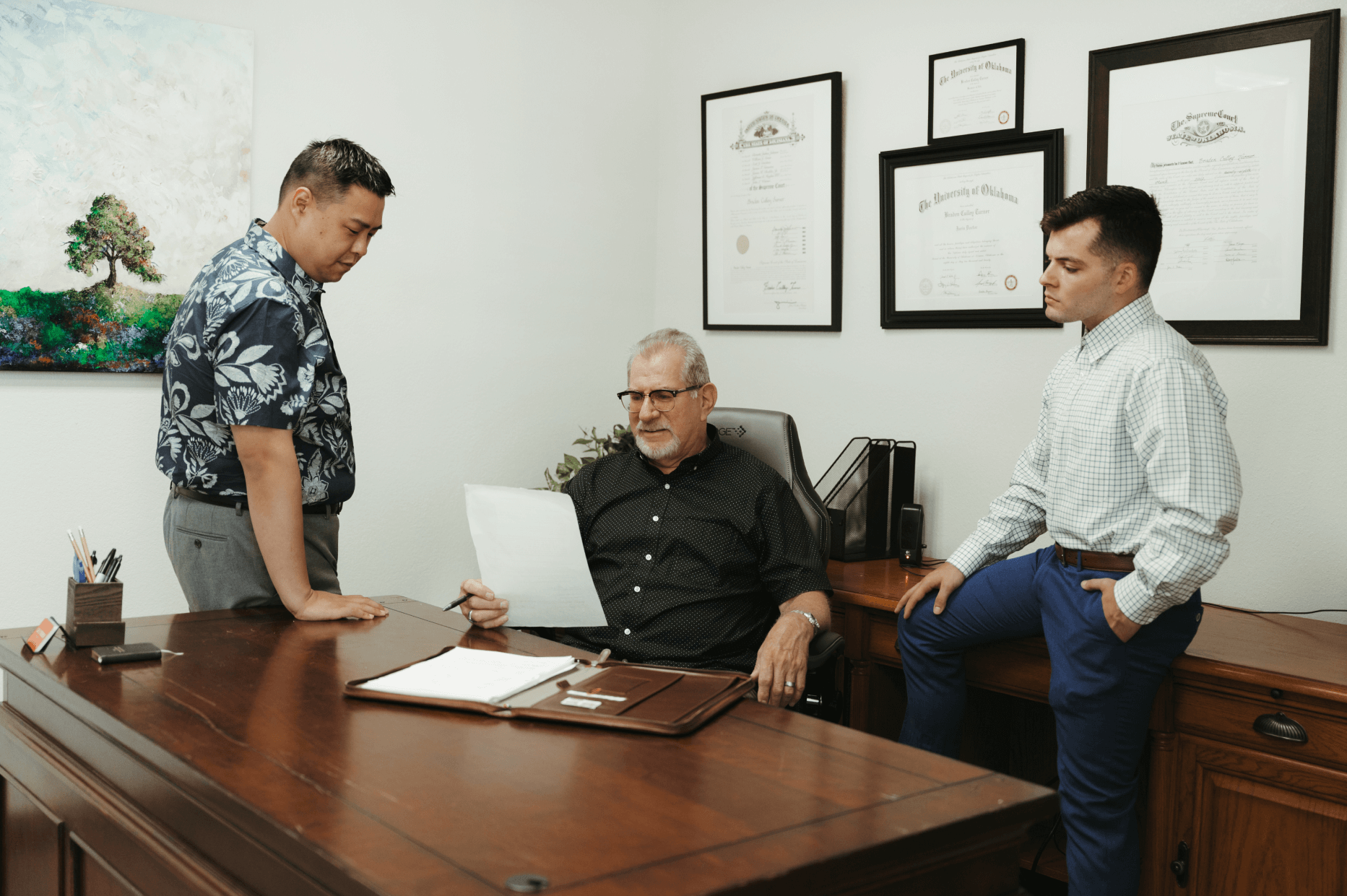
LIL DURK Facing Life
January 13, 2025
Navigating Divorce in Oklahoma: What You Need to Know About the Process, Laws, and Your Rights
January 13, 2025Our perspective on the excessive force allegations against the Oklahoma City police officer
Question: Was it reasonable under the circumstances?
It appears from the video that Mr. Vu, an elderly man, did make physical contact with the officer — touch, strike, hit, however you interpret it, could fall under a broad definition of “assault.” Moments later, he was body-slammed to the ground in a takedown that would make a WWE superstar proud (if it was in the ring). But here’s the real question: Was the officer’s reaction reasonable under the circumstances? Will the officer claim he feared for his safety? If he was genuinely concerned, why let Mr. Vu step out, walk around, and get so close without intervening earlier? This intense encounter might end up costing the city millions in legal fees and settlements, and it brings into question how far is too far when officers feel threatened. What is reasonable force?
Our hearts go out to Mr. Vu and his family during this difficult time.
Exploring the legal framework and key questions to consider when evaluating a potential lawsuit.
Statutory Framework
Under Oklahoma law, police officers are relieved of criminal liability for assault and battery if the force used is “necessarily committed by the officer in the performance of a legal duty.” Morales v. City of Okla. City ex rel. Okla. City Police Dep’t, 2010 OK 9.However, if excessive force is used, the officer is subject to the same criminal laws as any other citizen. Excessive force is defined as physical force which exceeds the degree of physical force permitted by law or the policies and guidelines of the law enforcement entity. Morales v. City of Okla. City ex rel. Okla. City Police Dep’t, 2010 OK 9 City of Owasso v. FOP, 2014 OK CIV APP 75
Constitutional Protections:
Article 2, Section 30 of the Oklahoma Constitution provides a private cause of action for excessive force against arrestees and pre-incarcerated detainees, notwithstanding the limitations of sovereign immunity set out in the Governmental Tort Claims Act (GTCA) Jackson v. Okla. City Pub. Schs. (Indep. Sch. Dist. No. 89), 2014 OK CIV APP 61. This was established in the case of Bosh v. Cherokee County Building Authority, where the court held that the GTCA cannot be construed as providing blanket immunity for violations of constitutional rights. See also Rocket Props. LLC v. LaFortune 502 P.3d 1112. Barrios v. Haskell Cty. Pub. Facilities Auth 2018 OK 90.
Reasonableness Test: The Oklahoma Supreme Court has adopted the reasonableness test for analyzing claims of excessive force by arrestees and pretrial detainees, as discussed in Graham v. Connor. This test assesses whether the force used was objectively reasonable under the circumstances.
Police Department Policies: The Oklahoma City Police Department’s Operations Manual instructs officers to use only such force as is reasonable and necessary under the circumstances Morales v. City of Okla. City ex rel. Okla. City Police Dep’t, 2010 OK 9. Reasonably necessary force is defined as force used when all other reasonable means to accomplish the desired action have been exhausted or would clearly be ineffective under the circumstances. Morales v. City of Okla. City ex rel. Okla. City Police Dep’t, 2010 OK 9

Analysis
The use of excessive force by police officers in Oklahoma is governed by a combination of statutory provisions, constitutional protections, and case law. Under Oklahoma law, officers are permitted to use force in the performance of their legal duties, but they are subject to criminal liability if the force used is excessive. Excessive force is defined as force that exceeds what is permitted by law or departmental policies.
Constitutionally, Article 2, Section 30 of the Oklahoma Constitution provides a private cause of action for individuals who have been subjected to excessive force by police officers. This constitutional protection is significant because it allows individuals to seek redress for violations of their rights, even in the face of sovereign immunity as outlined in the GTCA. The case of Bosh v. Cherokee County Building Authority reinforces this protection by clarifying that the GTCA does not provide blanket immunity for constitutional violations.
The reasonableness test, as adopted by the Oklahoma Supreme Court and discussed in Graham v. Connor, is a critical standard for evaluating claims of excessive force. This test requires an objective assessment of whether the force used was reasonable under the circumstances. This standard ensures that the evaluation of force is based on the specific context and facts of each case, rather than a subjective judgment.
Additionally, police department policies, such as those outlined in the Oklahoma City Police Department’s Operations Manual, provide further guidance on the use of force Morales v. City of Okla. City ex rel. Okla. City Police Dep’t, 2010 OK 9.These policies emphasize that force should only be used when it is “reasonable and necessary” and that all other reasonable means should be exhausted before resorting to force.This policy framework aligns with the statutory and constitutional standards, reinforcing the principle that excessive force is not permissible.
Conclusion
In conclusion, the use of excessive force by police officers in Oklahoma is subject to stringent legal standards and protections. Statutory provisions, constitutional rights, and departmental policies collectively ensure that officers are held accountable for the use of excessive force. The reasonableness test provides an objective framework for evaluating such claims, ensuring that the use of force is justified under the specific circumstances of each case.
Taking the first step toward justice can feel overwhelming, but at Lai & Turner Law Firm, our OKC Government Accountability Lawyers are here to make it as straightforward as possible. We offer free initial consultations for victims of excessive force, providing a no-cost opportunity to discuss your case and understand your rights.
Need Help?
You can schedule your free consultation for a prompt response at our office or a location convenient for you, such as your home or hospital room. We recognize that every situation is unique and are committed to accommodating your specific needs.
To arrange a free case strategy session regarding police misconduct, please call us at 405-407-4222 or fill out our contact form. This initial session is completely obligation-free, allowing you to make informed decisions without pressure.
Remember, you’re not alone in your pursuit of justice. OKC Injury Lawyers are here to support you every step of the way.
Disclaimer: The information presented herein is intended for informational purposes only and should not be considered legal advice. It does not establish any attorney-client relationship and is based on general legal principles. For personalized legal guidance, individuals are encouraged to consult a qualified attorney.




